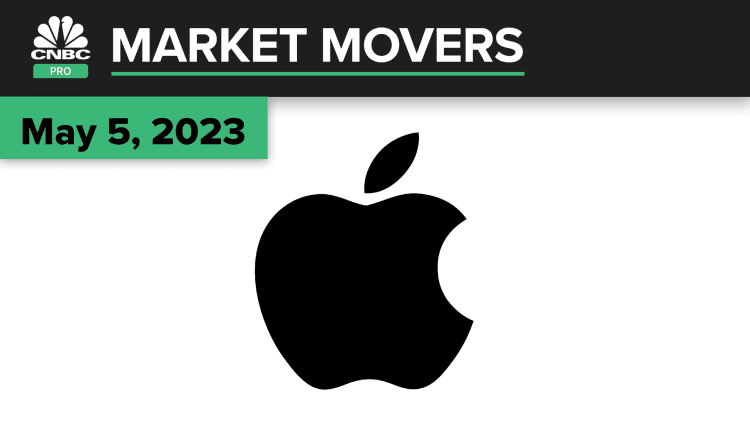
Stocks popped on Friday as regional bank shares climbed off their lows and market-darling Apple jumped after posting better-than-expected quarterly earnings.
The Dow Jones Industrial Average added 546.64 points, or 1.65%, to close at 33,674.38. The S&P 500 climbed 1.85%, ending the day at 4,136.25. The Nasdaq Composite advanced 2.25% and closed at 12,235.41.
Despite Friday’s rally, the Dow and the S&P 500 logged their worst week since March. The 30-stock Dow lost 1.24%, while the S&P 500 dropped 0.8%. The Nasdaq eked out a small weekly gain of 0.07%.
Stocks rose even as April’s jobs numbers came in hotter than expected. The U.S. economy added 253,000 jobs in April. Wall Street had expected 180,000 new jobs, according to Dow Jones.
Late Thursday, Apple posted beats on the top and bottom lines for the fiscal second quarter, propelled by iPhone sales. Apple shares gained about 4.7%.
The rebound for regional bank stocks was boosted by a note from JPMorgan, which upgraded Western Alliance, Zions Bancorp and Comerica to overweight. The firm said those three banks appear “substantially mispriced” in part due to short-selling activity. The SPDR S&P Regional Banking ETF (KRE) advanced more than 6%. PacWest — which is down sharply this week on news it’s considering strategic options that include a sale — popped 81.7%. Western Alliance also jumped 49.2%.
Shares of regional banking companies have been under pressure this week, as traders fear other institutions could suffer the same fate as Silicon Valley Bank and Signature Bank. Both banks collapsed in March.
Liz Young, head of investment strategy at SoFi, doesn’t believe the fallout in the regional banking sector is over despite Friday’s rebound. “When the whole news cycle started, it was sort-of explained away … as a unique circumstance for certain institutions. The reality is that liquidity is a universal challenge,” she said.
“The issue originally was that deposit flight was occurring. … But now that the pressure is no longer necessarily deposit flight. It’s this mark to market of the securities on all their books,” Young continued.
“So I don’t think that this news cycle isn’t necessarily over. … I also don’t think it dies of natural causes in the sense [that] it heats up and then just kind of cools down with no effect,” she added.
